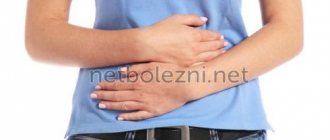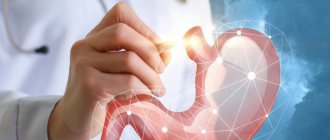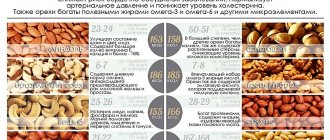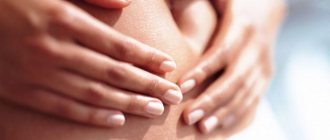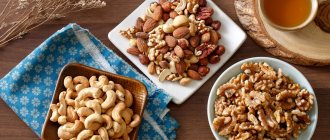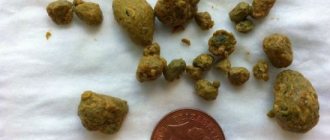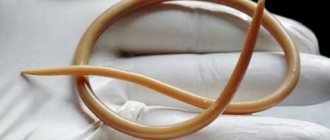January 29, 2020
The idea that nutrition is important becomes even more important when it comes to treating patients with Crohn's disease and ulcerative colitis. The patient’s diet must be complete and balanced so that the body has the ability to independently resist the disease and adequately respond to the drug therapy.
Food is fuel for our body.
The digestive system converts this fuel. Patients with Crohn's disease and UC begin to eat less food due to the pain syndrome that develops after eating it. The situation is aggravated during an exacerbation of the disease when the digestive process is disrupted, as a result of which nutrients are poorly absorbed (malabsorption), which leads to the development of malnutrition syndrome (malnutrition).
Malnutrition syndrome can develop in patients with nonspecific inflammatory bowel diseases: due to loss of nutrients due to bleeding and diarrhea; taking medications taken by patients with enteritis and colitis; due to surgical removal of part of the intestine due to a decrease in the absorption surface of the intestinal mucosa). Patients with nonspecific inflammatory bowel diseases should be highly alert for malnutrition syndrome, which develops very quickly. With the development of malnutrition syndrome in Crohn's disease and UC, patients quickly lose weight, there is a deficiency of proteins, fats, carbohydrates, essential vitamins and minerals, which creates favorable conditions for the development of complications and the occurrence of other diseases.
Is there a special diet for patients with Crohn's disease and ulcerative colitis?
There is no universal nutrition system (in the usual sense) for patients. An individual nutrition program should be developed for each patient, taking into account the severity of the disease and the level of damage to the gastrointestinal tract. Moreover, the course of the disease changes over time, so it is necessary to adjust the diet. Since healthy eating habits, which include a rational and balanced diet, have a pronounced positive effect in healthy people, in patients with inflammation of the intestinal mucosa are of paramount importance, taking this fact into account, the Nestle® Research Center developed the Modulen® IBD medicinal mixture in 1996 .
Avoid stress
It's no secret that it is a poor emotional state that, for the most part, is the cause of a large number of diseases (I wrote about this earlier, and this is reflected in the history of my illness). Stress is man's worst enemy. There are a great many ways to avoid stress: some find an outlet in food, some in sports, and some in meditation. Even walking in the fresh air helps remove bad thoughts from your head.
By following these tips, you will help your body become alkalized, taking your immune system to another level. The whole problem is that until now no one fully knows how this very immunity works.
4.3 / 5 ( 6 votes)
Share
Does the amount of fluid consumed matter in Crohn's disease and UC?
Yes. Chronic diarrhea is always accompanied by dehydration. If fluid intake is less than fluid loss, kidney function is impaired and the risk of stone formation increases. In addition, dehydration and loss of salts from the body cause a feeling of constant weakness. In this regard, sufficient fluid intake is recommended, especially in hot weather, when the loss of fluid and salts is maximum. On average, fluid consumption per day is 30-40 ml per 1 kg of body weight. You need to drink liquid in small sips to avoid swallowing air, which can cause digestive discomfort in the form of belching.
Take Digestive Enzyme Supplements
If your diet consists of 60-70% raw food, then you do not need any supplements. But if there are not enough raw vegetables in your daily menu, then the digestion process will create additional stress on the body, especially on the pancreas - in this case, the use of enzymes will be justified. Moreover, it is worth remembering that raw fruits and vegetables are good fiber, which is so necessary for our intestines to successfully digest food.
Does proper nutrition matter for Crohn's disease and ulcerative colitis (UC)?
Undoubtedly. Particularly patients with small intestinal damage are at risk of malnutrition for a number of reasons: Loss of appetite—as a result of severe nausea, abdominal pain, or taste disturbance—reduces food intake. The chronic course of the disease increases the body's need for energy and calories. This is especially true during periods of exacerbation. Inflammatory bowel disease, especially Crohn's disease, is usually associated with problems with the digestion and absorption of all nutrients and fluids. This condition is called intestinal malabsorption syndrome (malabsorption) and leads to the fact that most of the food consumed passes through the intestines, and the body does not receive the plastic material it needs. A balanced diet is the basis for the health of the whole body. In patients, decay processes predominate over tissue building processes, immunity decreases, i.e. the body is in a weakened state. Restoring and maintaining normal nutritional status is a leading component of treatment for several reasons: The effectiveness of drug therapy for Crohn's disease and UC increases, drugs are better absorbed, and the number of side effects is significantly reduced.
Since nutrients are poorly absorbed, there is a need to take larger amounts of food, and this is often very difficult against the background of severe clinical symptoms (nausea, lack of appetite). Impaired digestion and absorption of protein and other nutrients, lack of energy leads to retardation in the growth and development of children and adolescents. Weight loss due to intoxication in girls and women leads to pronounced hormonal changes.
How does nutrition affect growth in patients with Crohn's disease and ulcerative colitis?
Young people who become ill before puberty experience delays in growth and development. Poor nutrition against the background of the disease aggravates the situation. Thus, healthy eating habits and caloric intake are very important. As mentioned above, the effectiveness of drug therapy increases, and in the case of surgical intervention, wound healing time is reduced and overall well-being improves.
How to reduce pain after eating in Crohn's disease and UC?
During periods of exacerbation of the disease, eating may be accompanied by colic and severe pain. You can reduce discomfort in the following way: eat food often, in small portions (five meals a day every three to four hours, not three meals a day with several changes of dishes). Reduce your consumption of fatty and fried foods. Butter, margarine, sauces and pork can cause diarrhea and flatulence due to incomplete absorption of fats. Limit your intake of milk and dairy products if you do not tolerate milk sugar (lactose). Many healthy people cannot digest milk sugar because they lack the enzyme that breaks it down (lactose).
Lactose intolerance is accompanied by intestinal colic, severe abdominal pain, flatulence, diarrhea, and belching. Reduce your intake of fiber-rich foods such as nuts, seeds, corn, raw vegetables and fruits. Consumption of these products can cause colic and diarrhea. Therefore, a low-fiber, waste-free diet is recommended. However, even following all the recommendations, many patients experience digestive discomfort. In this case, it is necessary to resort to the help of medications recommended by the doctor.
What is a low fiber diet that is recommended for patients with Crohn's disease and ulcerative colitis?
In 2/3 of patients with small intestinal Crohn's disease, narrowing of parts of the intestinal tube (stricture) develops. For such patients, a low-fiber diet or a special liquid diet is advisable to reduce pain and other symptoms. The recommended diet reduces the intake of foods that are difficult to digest (raw fruits, vegetables, seeds, nuts and corn) and increases the content of indigestible particles in the stool. Typically, such dietary recommendations are temporary and are applied at the time of exacerbation.
Is food digested or not in patients with nonspecific inflammatory bowel diseases - Crohn's disease and UC?
In most cases, yes. Patients whose inflammatory process affects only the large intestine digest food normally. Patients with Crohn's disease may have problems with digestion if the small intestine is also involved. They may eat enough food, but will not be able to digest and absorb it adequately. About 40 patients with Crohn's disease primarily do not metabolize carbohydrates. In such a situation, flatulence, increased gas formation, and diarrhea may occur, against the background of which there will be a loss of essential nutrients. Insufficient fat absorption is another problem that accompanies Crohn's disease, observed in approximately 1/3 of all patients. The risk is increased in patients with terminal ileal resection. The degree of malabsorption depends on what level of the small intestine is affected in Crohn's disease or what area was surgically removed. If in a patient with Crohn's disease only the last 30-60 cm of the ileum are involved in the inflammatory process, the absorption of all nutrients, especially vitamin B12, will be normal; if more than 60 cm, impaired fat absorption may be observed. If the upper parts of the small intestine are involved in the inflammatory process, then the situation becomes significantly more complicated, since impaired absorption of proteins, fats, carbohydrates, minerals and many vitamins is observed. Some medications, especially 5-ASA, interfere with the absorption of folate, an essential nutrient that helps prevent cancer and birth defects, so this needs to be taken into account when planning your diet.
What is nutritional support for nonspecific inflammatory bowel diseases?
In case of NIBD, especially in Crohn's disease, additional nutritional support of the patient is required with special liquid nutrition, ready for consumption and absorption in the small intestine - enteral nutrition (Modulen® IBD).
Total parenteral nutrition (TPN) involves inserting a catheter into a large venous vessel, usually the subclavian vein. With this type of diet, nutrients bypass the intestines and allow the intestines to rest. Total parenteral nutrition can cause a large number of complications, unlike enteral nutrition; it is expensive and requires specialized training.
What is nutritional therapy?
The main goal of therapeutic nutrition for nonspecific inflammatory bowel diseases is to eat mechanically, chemically and thermally gentle food.
During the period of exacerbation of Crohn's disease and ulcerative colitis, split meals are prescribed 5-6 times a day. For persistent diarrhea, it is recommended to increase the protein content in food to 1.3-2 g kg per day. Milk is excluded if it is intolerant and the amount of coarse plant fiber is limited, especially with intestinal strictures. These conditions correspond to diet 4, then 4b.
In case of extensive damage to the small intestine with the development of malabsorption syndrome and short bowel syndrome, a multi-element, balanced, lactose-free mixture made from whey protein split into oligopeptides and containing medium-chain triglycerides, Peptamen®, produced by Nestle®, is recommended. Due to the fact that the severity of inflammatory bowel diseases, the duration of periods of exacerbation and the effectiveness of treatment are directly related to adequate nutrition, there is a need to find optimal nutrition that can take into account the entire range of nutritional needs of patients and has a therapeutic effect on the patient’s body, reducing the severity of inflammatory process and improving digestion. Classical dietetics recommends the following types of diets for Crohn's disease and UC: Diet 4, diet 4b, diet 4c.
Indications for prescribing diet 4A: acute and chronic intestinal diseases during the period of profuse diarrhea and pronounced dyspeptic symptoms. Diet 4 can be prescribed after 1-2 “fasting” days or immediately during an exacerbation of Crohn’s disease and UC.
After 4-5 days, the patient is prescribed diet No. 4b.
Diet No. 4b is prescribed for 4-6 weeks until stool is completely normalized and exacerbation of inflammatory phenomena in the intestines is eliminated. Then the patient is recommended diet No. 4c.
What's new in dietary therapy for patients with Crohn's disease and UC?
The main concept in the treatment of nonspecific inflammatory bowel diseases (Crohn's disease and UC) is that nutrition should help the intestines heal itself, and a huge number of experimental studies prove this. The use of fish oil and flaxseed oil in the diet or as an additional component of nutrition prevents inflammation in the intestinal wall in NIBD. Dietary fiber complexes activate bacteria in the large intestine, after which they begin to produce short-chain fatty acids. These fatty acids promote repair (healing) of the colon mucosa. Another tactic of using probiotics, which is only now gaining evidence, is also a means of helping with nonspecific colitis and enteritis. Probiotics are “good” bacteria that restore the balance of the intestinal microflora living in the intestines of every person. Lactobacillus preparations and yoghurts with live cultures are very beneficial. Quite a lot of work has been done on the use of diets and supplements, and quite a lot more should be studied.
Multiple meals
If your goal is to gain weight, the standard breakfast-lunch-dinner plan is not suitable for you. You should eat 5-6 times a day with average, let's say, portions. We focus on complex carbohydrates and animal proteins.
“Complex” carbohydrates are those that are not absorbed immediately, but over a long period of time. You can get complex carbohydrates from buckwheat, rice, and pasta. I would advise you to pay attention to brown rice. In fact, it is the same regular rice that we all know, but with one big difference - brown rice is not polished as much. Thanks to this, the outer shell of the rice and the germ are preserved, in which all the nutrients and valuable substances of this product are concentrated. It is because of the color of the preserved shell that this rice is called “brown”.
With animal proteins everything is even simpler than with complex carbohydrates. Animal proteins can be obtained from animal products. For example, from eggs, meat, fish, caviar, etc. Animal proteins differ from plant proteins in the most complete set of amino acids, which will have a positive effect on both your progress in weight gain and your overall well-being.
It is worth noting that as weight increases, the volume of BJU required for subsequent mass gain increases. Therefore, I repeat, calculate your calorie needs using simple instructions.
I offer an example of a daily diet for weight gain in UC and CD:
- Breakfast. Oatmeal in water with butter, 2 boiled eggs, toasted white bread with hard cheese.
- Lunch. 100 g chicken breast, 300 g boiled buckwheat, butter, stewed carrots.
- Dinner. Soup with meat, 200 g chicken breast, 300 g brown rice, 1 boiled chicken egg, stewed broccoli.
- Afternoon snack. Black tea with crackers and hard cheese.
- Dinner. 100 g chicken breast, 300 g boiled buckwheat, butter, stewed tomatoes.
- Before bedtime. 300 g of full-fat cottage cheese with honey, 1 boiled chicken egg.
Naturally, you can follow this diet only if the products included in it are well tolerated. By the way, check out the article on food allergies.

